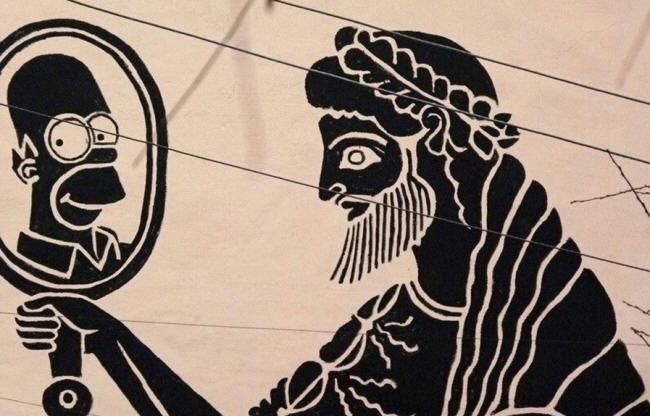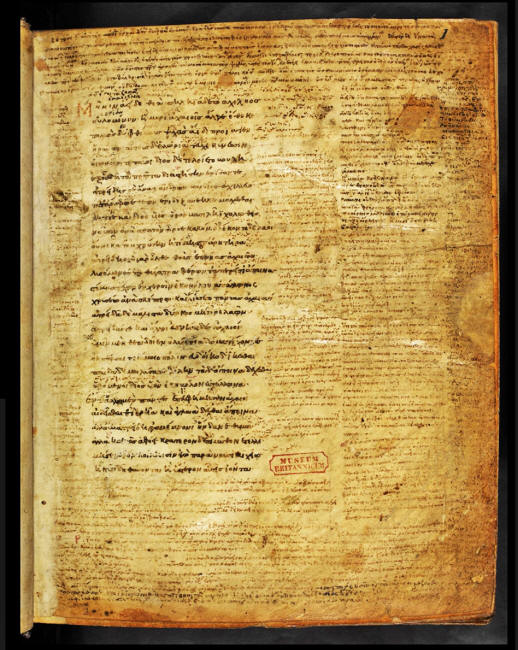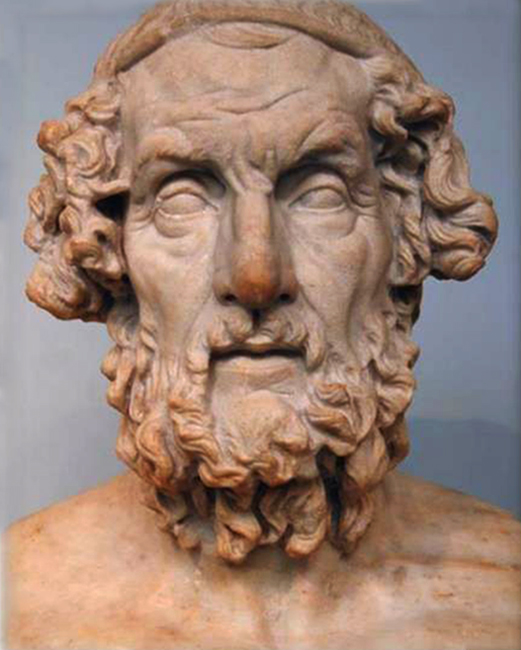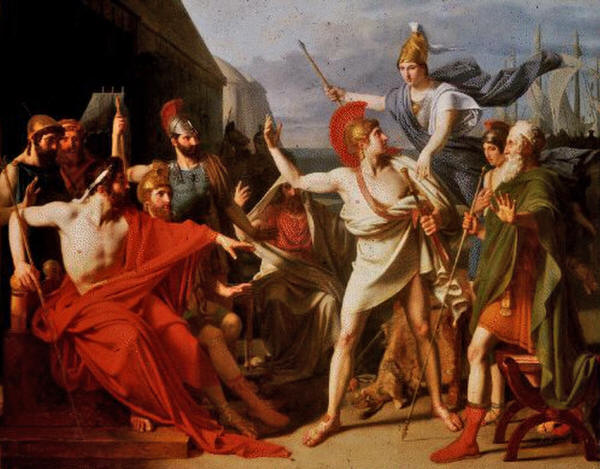|
from ClassicalWisdom Website
But who was Homer, exactly?
The answer is a little bit complicated...
But first, who did the
ancients think Homer was? Well, in antiquity, Homer was believed to have composed his great works in the Greek Dark Ages (9-8th century). According to this tradition, he was born on the island of Chios and was blind from birth.
It was believed that he was a wandering bard, and that he sung his epics to the public at festivals.
These poems were based on events and heroes from the Mycenaean Age (12th-11th century BC). His works were later written down, and though they had been changed and edited, it was still believed that the Iliad and Odyssey were ultimately the product of one mind: Homer's.
Even as far back as antiquity, however, there were those who questioned if Homer really did write the epics...
11th century manuscript of a Homeric epic
The Homeric Question Now we're going to jump forward in time quite a bit. Just a couple of millennia! Beginning in the 17th century, scholars began to develop textual criticism. Figures such as Isaac Causbon analyzed the texts of Homer and found certain discrepancies.
Critics began to suspect that the works of Homer were not actually written by just one person...
A Classical Era Bust of Homer
Rather, they believed that 'Homer' was the name given to a much larger oral tradition of storytelling.
The reading public rejected this idea right down to the 19th century, and maintained that the figure of Homer, the blind bard, was the author of the works. Milman Parry (1902 - 1935), an American Classicist, later revolutionized the study of Homer.
Based on archaeological finds, later scholars have found that the Homeric works displayed a knowledge of Mycenaean warfare and weaponry, which indicates that this oral tradition dated back to the 12th and 11th century BC.
Some elements of the poems, however, also came from later time periods.
This confirmed that the epics evolved as part of a very dynamic oral tradition:
The most famous epics in all of literature were not written by one man named Homer.
It was, in fact, the creation of many minds...
A 19th century painting of a scene from the Iliad
So Who DID Write the 'Iliad' and 'Odyssey'? It seems likely that itinerant bards sang of the heroics of the Greeks during the Trojan War during the Late Bronze Age.
Later bards developed their works and added to them.
Scholars speculate that "Homer" may have been a name for groups of travelling bards who travelled the Greek world.
The stories told about Homer may reflect the fact that the bards had connections to the island of Chios. Yet mysteries still persist: there is no agreement on this particular theory. The Homeric tradition was then popularized by the rhapsodists who succeeded the traditional bards.
All of these bards and rhapsodes contributed to the development of the Homeric works and helped to make them such great works of art. It appears that the oral poems were written down sometime in the 8th century after the development of the Greek alphabet. The various Homeric poems were compiled in Athens during the rule of the tyrant Peisistratus (c 520-540 BC), according to one source.
Another tradition argues that the versions of the work that we have were the result of scholars who worked in the Library of Alexandria (c 2nd century BC).
Conclusion The Homeric Question has been largely solved.
Bards, rhapsodists, and scholars all contributed to the work in some small way...
References
|





